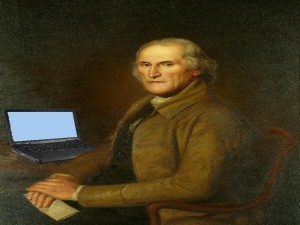
Would an opposition party that modernised service to members win elections as opposed to governments losing them?
Do any of these sound familiar from your previous experience with Australian elections?
“[Insert political party name] infighting really killed their election chances.”
“[Insert political party name] really underestimated how unpopular [insert policy name] would be.”
“[Insert party leader name] totally mis-gauged their approach to the electorate in the campaign.”
“[Insert political party name] was definitely seen to be ‘on the nose’ by the electorate.”
Then there are the more generic comments:
“Large slabs of the electorate seemed to be turned off by politicians of all stripes in this election.”
“The general dissatisfaction can be measured by the way that [insert new party name] came from nowhere to pick up [insert percentage] of the primary vote.”
“Turnout was only [insert percentage] once you take into account the numbers of voters who are fined for not voting and people voting informally.”
It is well known that oppositions do not win elections and that governments lose them so you’d think that political commentators might talk about something else aside from the importance of the opposition leader and his/her policies but they do not seem to – at least in the mainstream press.
Political parties are there to deliver a framework for government and win an election but the point that is too often missed is that requires far more than personalities and policies.
Here are some voter statements that you’ll hear less about in the press:
“[Insert political party] failed to contact me once in the last 3 years except for a leaflet shoved under my door 3 weeks before the election.”
“[Insert political party name] in the leaflet referred to ten policy areas of which I actually only care about one. Beyond my postcode they know nothing about how I personally think and what matters to me as an individual.”
“[Insert political party] requires me to take time out of my busy schedule to attend boring meetings to ‘participate’ in the political process and then when pre-selection comes around parachutes in some candidate blessed by head office anyway. There is no easy mechanism like online voting that enables me to participate in decisions made by parties.”
“None of my friends are actively involved in politics.”
“Political parties now consist of small numbers of people who are primarily concerned with their own egos and enriching themselves from the public purse either directly or indirectly by having the ability to influence appointments to public sector roles.”
If much of the above rings true for you and you accept that political parties do not win elections, governments lose them, then what exactly are political parties doing well?
The public certainly seems to have the view that parties don’t do much well at all.
Political party membership numbers have plummeted in the last 50 years in major parties in Australia (by 90%) but this should not be surprising given that they still operate like nineteenth century institutions.
Would anyone still bank these days with a bank that closed after lunch and had no online account access?
Even looking at party election fundraising, Australian law mandates that we vote and then the Australian Electoral Commision pays each of the major parties $2.31 for each primary vote. And the rest of funding comes from a few committed individuals and unions and businesses that want access to those in power if they need it.
And if you are already in the senior ranks of a party you probably even prefer small membership numbers – it is easier to do factional deals with a small number of party members than a larger number.
That might explain why interesting experiments like Senator Online (a non-policy party where you tell your senator how to vote on legislation you have an interest in via Smartphone app) are happening outside the major parties.
So the next time you hear an election post-mortem commenting on how the policies or politicians ‘won’ or ‘lost’ that particular election spare a thought for the institutional framework that plays an equally important role in determining the outcome – the parties.
And if you’re like me you can dream that one day one of the major parties will start treating their customers (i.e. voters) like any other twenty-first century organisation would.
This article filed under the following 'Interest' categories (click category for more) Hate pets, Unanswerable questions
Article posted by @Drivelry on September 8, 2013
Filed under topics (click for more articles on that topic): party politics